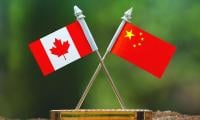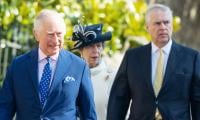Turnaround Pakistan
As we get ready to celebrate Pakistan's 75th independence anniversary, I am reminded of my passion and euphoria at the 50th independence anniversary in 1997 when I initiated Vision 2010 with the aim of seeing Pakistan as a middle-income country by 2010. In 1999, the imposition of martial law dashed the dream. In 2013, back in power I worked on Vision 2025 to put Pakistan in the top 25 economies of the world by 2025. In 2017, the PWC report confirmed our journey by projecting Pakistan as being in the top 20 economies by 2030. But, the winds of Naya Pakistan crash-landed that journey.
Today we stand at another milestone of history with my generation losing the gains of the past 25 years. To me the central issue is how our children and their generation stand before history 25 years later in 2047 when Pakistan will celebrate its centenary. Will our next 25 years be like our past 25 years or will we make a break from history?
When we came into government after a no-confidence motion, there were two choices before us. One, take a ‘populist’ position by running a high budget deficit by expanding the hole in the economy through further subsidizing petroleum products or use the historic inflation figures generated under the PTI government for political gains by going for fresh polls by plunging the country into a period of political uncertainty with devastating impact on the economy. For most, if not all, political pundits and experts, this was an obvious and simple choice: put our political interests above all considerations. But for the PML-N, protecting the medium-to-long term economic interests of Pakistan and its 220 million people reigned supreme. That is why against all the odds, the PML-N led coalition government under the leadership of Prime Minister Shahbaz Sharif has opted for the second choice: take all the necessary measures to Turnaround Pakistan.
Our critics and supporters both tend to agree that the PML-N made a difficult and bold decision by taking the responsibility of stabilizing Pakistan’s economy which was nosediving due to the reckless decisions of Imran Khan’s government. If this means putting the PML-N’s political capital at stake, we are willing to do so. In sharp contrast to political pundits, we believe that the people of Pakistan understand the severity of the crisis and they demand a political leadership which is willing to look beyond political interests for the wellbeing of the nation. This would not be the first time. The people of Pakistan have turned around the country on several occasions during its 75 years’ history. There have been at least four critical moments in its sordid history when exceptional national resilience and leadership resolve enabled the country to sail through a formidable challenge to its survival as a sovereign state.
Pakistan was born with virtually nothing at the start. The country also had to deal with the existential threat from India. The perpetual crisis in Kashmir, manifested in the wars of 1948 and 1965, particularly drained national resources. Yet, the model of economic development that then-Pakistani leadership was able to conceive in the 1960s laid the groundwork for the emergence of Asian Tigers in East Asia, from South Korea to Singapore.
In 1971, we lost half of Pakistan. India had conspired in the creation of Bangladesh. A productive part of the country was gone. There was no light at the end of the tunnel. And, yet, within two years, the popular leadership of PM Zulfikar Ali Bhutto was able to build the urgently needed political consensus for the 1973 constitution, which has continued to unite the nation around the fundamental principle of parliamentary democracy in the past half century.
In 1998, India committed another original sin through nuclear tests, forcing Pakistan to respond in kind. The country was already facing US sanctions under the Pressler amendment in the aftermath of the US-sponsored jihad in Afghanistan. Now it also had to deal with more stringent, nuclear-related economic and political sanctions. But the country was resolute to overcome this unprecedented challenge under the leadership of Prime Minister Nawaz Sharif.
In 2013, the government led by the PML-N inherited an economy facing unprecedented energy crisis amid the 'war on terror', which had caused a loss of over $150 billion to the national exchequer. The National Action Plan contained terrorism by successfully nudging its local and foreign sources. The energy crisis was resolved in time through crash hydel and thermal projects, particularly through the China-Pakistan Economic Corridor.
History testifies that each time we have faced a pivotal economic crisis, along with its horrific political and security ramifications, we have not only muddled through it successfully but also come out stronger as a nation. The difference this time is three-fold. Never before has the country’s economy come so close to financial default. Never before have its core foreign relationships, be it with the US, China and Saudi Arabia, been so harmed that it would take a lot of effort to heal the wounds. More importantly, and tragically so, the PTI regime and leadership seems to have deliberately caused this crisis, as admitted by the former interior minister of Imran Khan’s cabinet.
In 2018, the PML-N government left a GDP of $356 billion. By FY2021, this had shrunk to $346 billion along with rampant increase in population, inflation and current account deficit. Covid-19 was an exogenous shock to Pakistan’s economy so it would not be fair to associate Covid-related economic slowdown to the PTI’s government. Therefore, I would like to only focus on the time period 2018-2020 prior to Covid-19. Under the PTI government, GDP growth rate dropped from 5.5 per cent to under one per cent. Inflation jumped from 4 to 11 per cent. Pakistan’s per capita income declined by more than 20 per cent. The Pakistani rupee lost its value by more than 40 per cent. And the performance of the Pakistani stock market remained well below its 2017 peak levels. As the planning minister, I left PSDP at more than Rs1,000 billion in 2017-18. Instead of building on it, the PTI government reduced it to Rs500 billion because of misplaced priorities and lack of interest in economic development.
In order to deploy the collective wisdom of our nation to come out of this economic quagmire, the government – through the Ministry of Planning, Reforms and Special Initiatives – has convened the Turnaround Pakistan conference with the theme 'Let’s Rise Again!'. The event will bring together the best brains in Pakistan to deliberate solutions of key challenges faced by the country under the seven themes: developing human and social capital; achieving sustained, indigenous and inclusive growth; institutional reform and democratic governance; energy, water & food security; private sector-led growth; improving national competitiveness and modernization of transportation infrastructure & greater regional connectivity.
The event will help the government develop a short-term stabilization problem aimed at achieving macroeconomic stability with minimal possible hardship for the poorest sections of the society. Already, the government has expanded the BISP and provided targeted support of Rs2000 per month for households with income less than Rs40,000. The government has also sought to put proportionate economic burden on the upper classes by imposing a one-time super tax. Further, despite constraints, we have put forward an impressive Rs2,184 billion for the National Development Plan in the 2022-23 budget. It includes a federal development outlay of Rs800 billion and provincial development plans of Rs1,384 billion. We have prioritized our youth. Higher education has been allocated Rs65 billion along with a further Rs40 billion in development funds.
Through the Turnaround Pakistan Conference, we not only want to generate concrete, actionable and innovative ideas to overcome key challenges, but also create a community of the ‘Champions of reforms’. This community will not only serve as the nerve centre to advise the government on key policies, but also make it accountable for implementing the agreed steps. We truly believe that together, we shall rise again, as we have done several times in the past. I encourage and invite you to be part of these efforts and join hands with the government to turnaround Pakistan.
The writer is the minister for planning, reforms and special initiatives. He tweets @betterpakistan and can be reached at: betterpakistan@gmail.com
-
 China Cuts Anti-dumping Duties On Canadian Oil Imports After Final Trade Decision
China Cuts Anti-dumping Duties On Canadian Oil Imports After Final Trade Decision -
 Prince Harry, Meghan Markle Make Major Change To Strategy To Please Royal Family
Prince Harry, Meghan Markle Make Major Change To Strategy To Please Royal Family -
 Chester Bennington’s Mental Health Story And Lasting Legacy
Chester Bennington’s Mental Health Story And Lasting Legacy -
 John Cusack Gears Up To Give Fans Exciting Surprise On Late-night Television
John Cusack Gears Up To Give Fans Exciting Surprise On Late-night Television -
 Yerin Ha Opens Up About Shocking Diagnosis Post ‘Bridgerton’ Season 4
Yerin Ha Opens Up About Shocking Diagnosis Post ‘Bridgerton’ Season 4 -
 Meghan Markle, Harry Leave King Charles, Prince William Furious With Latest Move
Meghan Markle, Harry Leave King Charles, Prince William Furious With Latest Move -
 NASA Announces New Artemis Moon Mission Aimed At Expanding Astronauts’ Exploration Efforts
NASA Announces New Artemis Moon Mission Aimed At Expanding Astronauts’ Exploration Efforts -
 Everything To Know About Justin Bieber's Facial Paralysis
Everything To Know About Justin Bieber's Facial Paralysis -
 Morgan Stanley Predicts AI To Replace Tasks Not Workers
Morgan Stanley Predicts AI To Replace Tasks Not Workers -
 Anthropic Dario Amodei Calls White House Response ‘retaliatory’ In AI Safety Dispute
Anthropic Dario Amodei Calls White House Response ‘retaliatory’ In AI Safety Dispute -
 Tia Mowry Breaks Silence On Angelina Jolie Asking 'unbelievably' Personal Question: 'Wilder'
Tia Mowry Breaks Silence On Angelina Jolie Asking 'unbelievably' Personal Question: 'Wilder' -
 Savannah Guthrie Speculations 'sadly' Coming True About Mother Nancy
Savannah Guthrie Speculations 'sadly' Coming True About Mother Nancy -
 Trump Administration Warns Of Slow Payouts For Tariff Refunds Amid Intensifying Trade Disputes
Trump Administration Warns Of Slow Payouts For Tariff Refunds Amid Intensifying Trade Disputes -
 Princess Beatrice 'far From Comfortable' After Father Andrew's Arrest
Princess Beatrice 'far From Comfortable' After Father Andrew's Arrest -
 Sarah Ferguson’s Dual Cancer Journey
Sarah Ferguson’s Dual Cancer Journey -
 GTA 6 Security: Rockstar Blocks Leaks Ahead Of Launch
GTA 6 Security: Rockstar Blocks Leaks Ahead Of Launch



